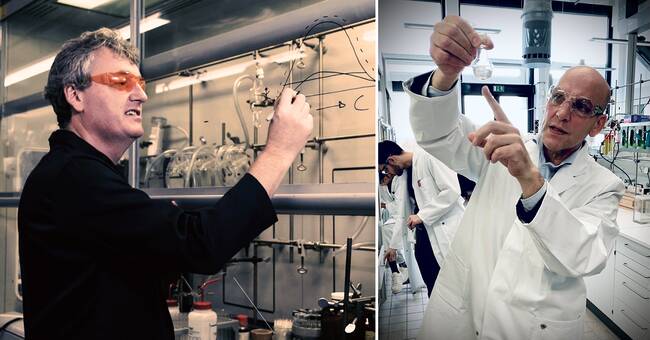- It was shocking for the chemical community that our simple molecules could start the chemical process.
And also with such great certainty, says Professor Benjamin List at the Max-Planck Institute in Mülheim an den Ruhr.
New tool in molecular construction
Their discoveries have revolutionized the core area of chemistry.
Instead of using complex and toxic substances to initiate chemical processes, Nobel laureates tried to use simple organic molecules.
That is, such molecules that build everything living around us, an ordinary carbon compound.
It turned out to be a stroke of genius.
They had discovered a whole new tool for molecular builders.
- It was a so-called heureka experience when I saw that it worked, says this year's second prize winner David MacMillan at the University of Princeton.
As early as the 19th century, chemists explored how different substances react with each other.
To start the chemical processes, a number of different so-called catalysts have since been used, but they have in principle been exclusively of two kinds: toxic metals and complicated enzymes.
Struck the research world with astonishment
This year's Nobel laureates showed that it is possible to have even more effective reactions with ordinary organic molecules.
And it stunned an entire research world when they published their discoveries more than twenty years ago.
No one had expected their technology to work.
It was too simple and straightforward.
And also more environmentally friendly, because it avoids producing residual products.
The discovery has since quickly gained a foothold in chemistry, and spread to the molecular builders' workshops around the world.
- We can develop a new molecule on a Tuesday, and at the end of the week, chemists in other laboratories will work with it to produce new medicines, says David MacMillan.
New drugs
The discoveries have had the greatest significance in the pharmaceutical industry.
Both to develop new drugs, and to streamline the production of existing ones.
The production of antiviral drugs is a current example where their discoveries have gained importance.
But according to this year's Nobel Laureate, we are still only at the beginning of the revolution.
- Our discovery is a tool, a hammer for chemists.
What we manufacture with our tools is limited by creativity.
Maybe we will be able to make diamonds from atmospheric carbon dioxide in the future, says Benjamin List.
See the whole World of Science - Climate crisis, feeling and chemical success on SVTplay from today and 20.00 on SVT2 on Monday.

